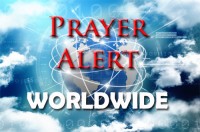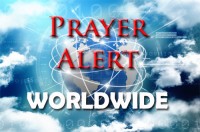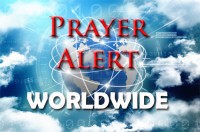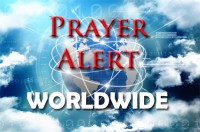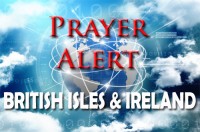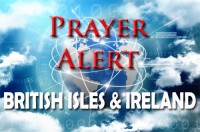Canada: Alberta wildfire and a call to prayer
Officials are rethinking their plans to let people return to Fort McMurray after the fires gained new life this week and destroyed a 665-room oilsands work-camp north of the city. Oilsands facilities and work-camps north of Fort McMurray were ordered to evacuate. Nineteen work-camps and as many as 8,000 people were affected by the new evacuation order. Oilsands facilities are used for processing bitumen. They have separate teams of firefighters and are surrounded by gravel to keep the fire out. Canada’s prayer network ‘Ears to hear’ has called for a forty-day prayer focus on Alberta, from 16 May to 24 June. They are focusing prayer from across Canada, praying for the people who lost everything in Fort McMurray; for rains for the fire and the rain of the Spirit; and for the Church to awaken and experience wholehearted turning so that blessing will come. See:
Brazil: disaster or opportunity?
Crowds have taken to the streets of Brazil in recent months. Fed up with corruption and the realities of a declining economy, many called for President Rousseff's removal. This week her presidency was officially suspended. The country stands in the midst of a political crisis and severe economic recession, but the issues are far deeper. Brazil is the second highest consumer of illegal drugs globally, and has the highest rate of firearm homicides. There are seven million child labourers and 600,000 girls in prostitution. However, Brazil also has one of the largest evangelical populations in the world, with large and growing movements of prayer and missions. The mounting political and economic crisis contrasts with the reality of the growing and influential Brazilian Church.
Venezuela: public health emergency
‘The death of a baby is our daily bread,’ said a Caracas surgeon, referring to Venezuela’s collapsing hospitals. The economic crisis has exploded into a public health emergency, claiming the lives of untold victims. The unravelling has become so severe that the President has imposed a state of emergency and raised fears of a government collapse. In hospital wards there are no gloves or soap, and cancer medicines are only found on the black market. There is so little electricity that the government works just two days a week. At a hospital in Mérida there is no water to wash blood from operating tables, and doctors clean their hands with bottles of seltzer water. It is criminal that a country with such large oil reserves allows people to die for lack of antibiotics. The food shortage, due to a variety of government-imposed problems, is so severe that the opposition party is organising street protests to demonstrate the people’s needs. They need food, and the government is not getting it out fast enough. See:
Pakistan: Muslim threats, and forced marriage
In a Punjab village, 28-year-old Imran Masih has been accused of keeping a ‘blasphemous’ video clip on his cell phone. He is an illiterate man with no knowledge of the internet. Local Islamists have issued a fatwa (Islamic death edict) against Masih, and have told the 300 villagers that they must either produce Masih, leave the area, convert to Islam, or be killed. Police thwarted an attempt to burn down all their homes. Elsewhere in Pakistan Maryam Mushtaq, a 24-year-old Christian woman, was abducted by Muslims and forced to convert to Islam and marry one of her kidnappers. Maryam’s mother (who lost her husband to cancer in 2013) reported her daughter’s kidnapping to police, but nothing has been done yet. A hearing will be held about Maryam’s case, but justice is unsure: unfair treatment of Christians by Pakistani officials is a frequent occurrence. See also:

